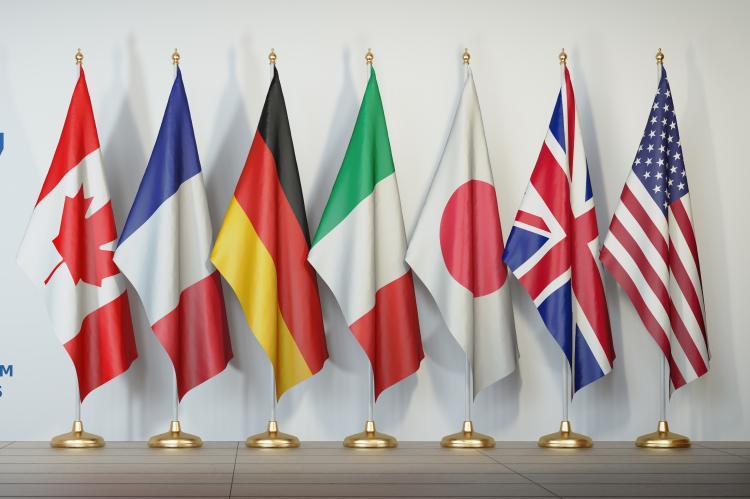G7 Leaders Closer to Propose Price Cap on Oil and Gas from Russian Pipelines

The Group of Seven leaders, which met in Schloss Elmaus, Germany, agreed to explore a price cap on the Russian oil and pipeline gas to increase pressure on the Russian regime by slashing its revenues while reducing inflationary pressure in the west.
The war in Ukraine and its effect on the economy, particularly skyrocketing food prices and energy inflation, dominated this year's G7 Summit at the castle resort in the Bavarian Alps as the leaders explored viable options to tighten vice militarily and economically around the Kremlin without ending up with a disastrous spillover.
At the start of the Summit, President Joe Biden said Putin had been surprised by the level of unity shown by the west. He added that the Russian leader hoped NATO and G7 would splinter, but the groups have since remained intact.
As Russia continues its attack on Kyiv and captures more cities in east Ukraine, there are concerns that the west has not come up with rigid policies that would force Putin to back down. The UK and the US's move to ban Russian gold is considered as not a decisive step and does not have clear support from the EU.
A Possible Price Ceiling in the Making
The G7 is considering a price ceiling to prevent Russia from profiting from its attack on Ukraine. The twin cap on oil and pipeline gas prices was heavily canvased by Italian premier Mario Draghi and supported by the French president, Emmanuel Macron.
With the gas cap in place, European countries would refuse to pay above a specific price yet to be fixed for Russian gas. In the short time, it is believed Russia does not have an alternative market for its pipeline gas and would be forced to sell at a price dictated by Europe if it is unprepared to forego the revenue and shut down the pipeline.
"Putting a ceiling on the price of fossil fuels imported from Russia has a geopolitical goal as well as an economic and social one. We need to reduce our funding to Russia. And we need to eliminate one of the causes of inflation. We must avoid the mistakes made after the 2008 crisis: the energy crisis must not produce a return of populism," said Draghi.
A price cap would warn the quasi-monopoly responsible for insuring Russian oil of possible sanctions if they allow oil prices to go above the fixed price. London-based International Group of Protection and Indemnity Club accounts for about 95% of the world's liability coverage. The insurance organization has to abide by European laws.
Consequences of a Price Cap
Russian oil production has fallen due to the pressure of sanctions. However, its price per barrel remains high because of the increased global oil prices, which is the opposite of what the west wants.
Germany is the only G7 country not fully supporting the price cap. It fears Russia may react by turning off the gas supply to Europe. Last week Moscow reduced gas flow to Europe by 60%, citing delays in equipment maintenance. If Russia cuts off supplies to Europe, Europe will struggle to build up the reserves it needs to survive.

